Discussing opportunities for cooperation and transfer of biotechnology and biomedicine between Vietnam and Cuba |
To date, Cuba has built a synchronous biomedical ecosystem, integrating basic research, product development, clinical trials, industrial-scale production and export, with over 30 research and production centers, many products are exported to more than 50 countries.
Outstanding advantages of Cuban biomedical technology: Low cost - high efficiency, Cuba focuses on developing technology suitable for developing countries with reasonable costs, easy to access. Closed value chain: Autonomy from research to production and commercialization, avoiding import dependence. Products suitable for tropical practices. Strong human resources: The ratio of scientific doctors / population is the highest in Latin America.
This is the basis for opening up cooperation opportunities between Vietnam and Cuba in the biomedical field, because the two countries have high compatibility in terms of epidemiological conditions, climate and public health development policies.
Vietnam has a large production infrastructure and consumer market, while Cuba has core technology and international inventions, creating a good foundation for establishing a joint venture - co-development model at the Vietnam - Cuba Biomedical Technology Cooperation Center.
At the Vietnam - Cuba Biomedical Technology Cooperation Workshop, experts from leading Cuban biomedical corporations introduced projects with cooperation prospects; including the Cancer Treatment Support Project using Scorpion Venom of the LabioFAM Corporation and cooperation proposals with Vietnam.
• CANCER TREATMENT SUPPORT PROJECT FROM CUBA SCORPION VENOM
Dr. Aníbal Domínguez Odio - Director of Research and Innovation, LabioFAM Group introduces the Cuban Scorpion Venom Cancer Treatment Support Project and cooperation proposals with Vietnam |
Cancer is one of the diseases with the greatest impact in both developed and underdeveloped countries and is one of the leading causes of death worldwide . In 2022, there were 19,976,499 new cases reported worldwide and 9,743,832 deaths. Specifically, in Vietnam, 180,480 new cases and 120,184 deaths were reported. Meanwhile, in the same year in Cuba, a total of 49,688 new cases and 27,724 deaths were reported, meaning the number of people with the disease is very low compared to Vietnam.
In recent years, there have been significant advances in stem cell therapy, immunotherapy, targeted therapy, ablation therapy, nanoparticles and natural antioxidants. However, all of the currently available alternative treatments have limitations due to the progressive resistance that tumor cells have to this treatment and the toxicity it causes in non-tumor cells. Dr. Aníbal Domínguez Odio - Director of Research and Innovation, LabioFAM Group and Dr. Arianna Yglesias Rivera - Head of the Anti-Cancer Peptide Research Project, LabioFAM Group presented the research project aimed at finding forms of treatment that contribute to the prevention and elimination of cancer, which occupies a very broad area in the field of research.
In particular, Cuban scorpion venom is widely used in traditional medicine for its anti-tumor properties. The venom of the endemic Cuban scorpion Heteroctenus junceus has anti-inflammatory, analgesic and anti-tumor properties. The LabioFAM Group business team has focused on finding scientific evidence to demonstrate the potential of Heteroctenus junceus scorpion venom as an adjuvant therapy in the treatment of cancer.
Heteroctenus junceus scorpion venom significantly affects the viability of epithelial tumor cells, without affecting normal cells or non-adherent tumor cells. Low molecular weight proteins contained in the venom are mainly responsible for its biological activity.
In vitro, Heteroctenus junceus scorpion venom induces cell death, at low concentrations, through apoptosis, while at high concentrations it is capable of inducing necrosis and increasing DNA fragmentation in vivo, thus it can inhibit the apoptosis resistance of tumor cells.
Heteroctenus junceus scorpion venom caused significant delay in tumor progression in experimental breast and colon cancer models when administered orally and intraperitoneally.
The antitumor and antimetastatic effects of Heteroctenus junceus scorpion venom are likely to be exerted by modulating the physiological activity of Na+ and K+ ion channels involved in cell proliferation, migration, and metastasis.
Heteroctenus junceus scorpion venom in the presence of mammary tumor cell lines reduced TNF-α and IL-6 levels, contributing to the antitumor effects observed in vivo.
Combined treatment with Heteroctenus junceus scorpion venom and chemotherapy synergistically increases its antitumor effect, depending on the type of cytostatic agent, its concentration and its cell line. It also promotes a beneficial dose reduction of conventional therapy, which will help reduce its side effects and chemoresistance and may constitute an effective treatment strategy in cancer patients.
The venom of the scorpion Heteroctenus junceus has anti-inflammatory and analgesic effects and is very safe with low toxicity. The venom has a high affinity for tumor tissue, meaning it remains in the body for a longer period of time, resulting in higher bioavailability in pathological conditions.
Oral pharmacokinetic studies have shown that the venom is highly present in breast, lung, stomach, small intestine, large intestine and liver tumors, suggesting potential for the treatment of gastrointestinal and lung malignancies, and also demonstrating high biodistribution of the venom in the body.
The study also demonstrated proof of concept with peptide RjLB-14 showing that it is a safe compound with rapid and widespread distribution in the body, making it an active pharmaceutical ingredient with great potential for the future development of anti-tumor drugs for various target sites. The anti-tumor effect of peptide RjLB-14 suggests a broad potential as a future anti-tumor drug for various target sites.
Dr. Arianna Yglesias Rivera - Head of Anti-Cancer Peptide Research Project, LabioFAM Group introduces the research project from Cuban scorpion venom |
The presented scientific research results allow Cuba and Vietnam to cooperate in developing drugs with anti-tumor potential and with a large social and economic impact. LabioFAM Group proposes to cooperate in research and commercial production of products derived from Heteroctenus junceus scorpion venom in Vietnam. Enhance the development of scorpion farms at LabioFAM to breed Heteroctenus junceus scorpions. Transfer technology of natural products based on available raw materials in Vietnam. Cooperate to improve the cultivation of Arthrospira platensis (Spirali) at LabioFAM to increase current production levels. Develop new natural products in Vietnam and cooperate in applying them to the health care and treatment system in Vietnam, and participate in bringing LabioFAM natural products into the Vietnamese health system.
The Green Economy Institute and LabioFAM Group (Cuba) have signed a comprehensive cooperation framework agreement on joint research, development, production and trade of agricultural biotechnology and natural medicine products and research projects to serve people's health care and sustainable agricultural development. Among them are famous Cuban products such as cancer support products from green scorpion venom, biological pesticides, microbial fertilizers, natural cosmetics...
• OVERVIEW OF THE CUBA BIOPHARMACEUTICAL INDUSTRY (CIGB)
Dr. Miladys Limonta Fernández - Director of Business and Development, CIGB Center for Genetic Engineering and Biotechnology discusses cooperation opportunities with Vietnam |
Dr. Miladys Limonta Fernández - Director of Business and Development, CIGB Center for Genetic Engineering and Biotechnology introduced the strengths of biomedical technology serving sustainable agriculture of the Cuban Center for Genetic Engineering and Biotechnology and cooperation opportunities with Vietnam.
BioCubaFarma Group was established in 2012, including more than 15,000 employees (268 PhDs, 1,265 Masters), 51 enterprises, 164 production lines (in 11 foreign countries); 21 science, technology and innovation units; 396 R&D research and development projects (2,300 patents), 760 circulation licenses, exporting to 77 countries. Closed production system from research - testing - production - distribution - export. GMP standard production system, continuously expanding with new companies. There are 10 international joint ventures in countries, including GENFARMA - VIETNAM joint venture developing, producing and trading biological products. Technology platform: Monoclonal antibodies, vaccines, proteins and recombinant peptides.
The Center for Genetic Engineering and Biotechnology (CIGB) has many fields such as Biomedicine: diagnosis, treatment, prevention of infectious diseases, autoimmune diseases, cardiovascular diseases, cancer... Veterinary: disease prevention and treatment, animal nutrition; Agriculture: pest control; Industry: food products. Main products: 5-in-1 vaccine, recombinant hepatitis B, Hib conjugate; Interferon alpha, gamma, HeberFERON, Heberprot-P, Jusvinza, Abdala, diagnosis; Veterinary: GAVAC, bionematicide, Acuabio.
CIGB's closed cycle: Research, development - clinical trials - production, quality control - commercialization.
Hepatitis B vaccination program in Cuba has seen a sharp decline in cases from 1992-2019, with the entire population under 40 vaccinated. Abdala: the first COVID vaccine in Latin America - already used in Vietnam (5 million doses).
International patents & approvals: 768 applications, 62% patents, 29% granted and 252 licenses in 57 countries.
Open partnership models: Licensing, co-development; distribution, representation; contract manufacturing; investment and scientific collaboration.
The Green Economy Institute also signed a Memorandum of Understanding on comprehensive cooperation with the CIGB Center for Genetic Engineering and Biotechnology (BioCubafarma Company - Cuban Ministry of Health) on cooperation in research, development, production and trade of agricultural biotechnology products and research projects; notably vaccines for animals, livestock, poultry, aquatic products, biological food preservatives, etc.
Cuba, with its will to be self-reliant, has gradually overcome difficulties to become one of the world's leading countries in biotechnology and biomedicine. The Vietnam - Cuba Biomedical Technology Cooperation Workshop opens up specific cooperation opportunities between Lam Dong and Cuban biotechnology enterprises in exploiting the potential for biomedical technology development.
Cuban experts and partners are particularly interested in the cooperation program. Vietnam - Cuba biomedical technology |
Source: https://baolamdong.vn/xa-hoi/202506/tiem-luc-cong-nghe-y-sinh-cua-cuba-va-co-hoi-hop-tac-voi-viet-nam-13b123b/


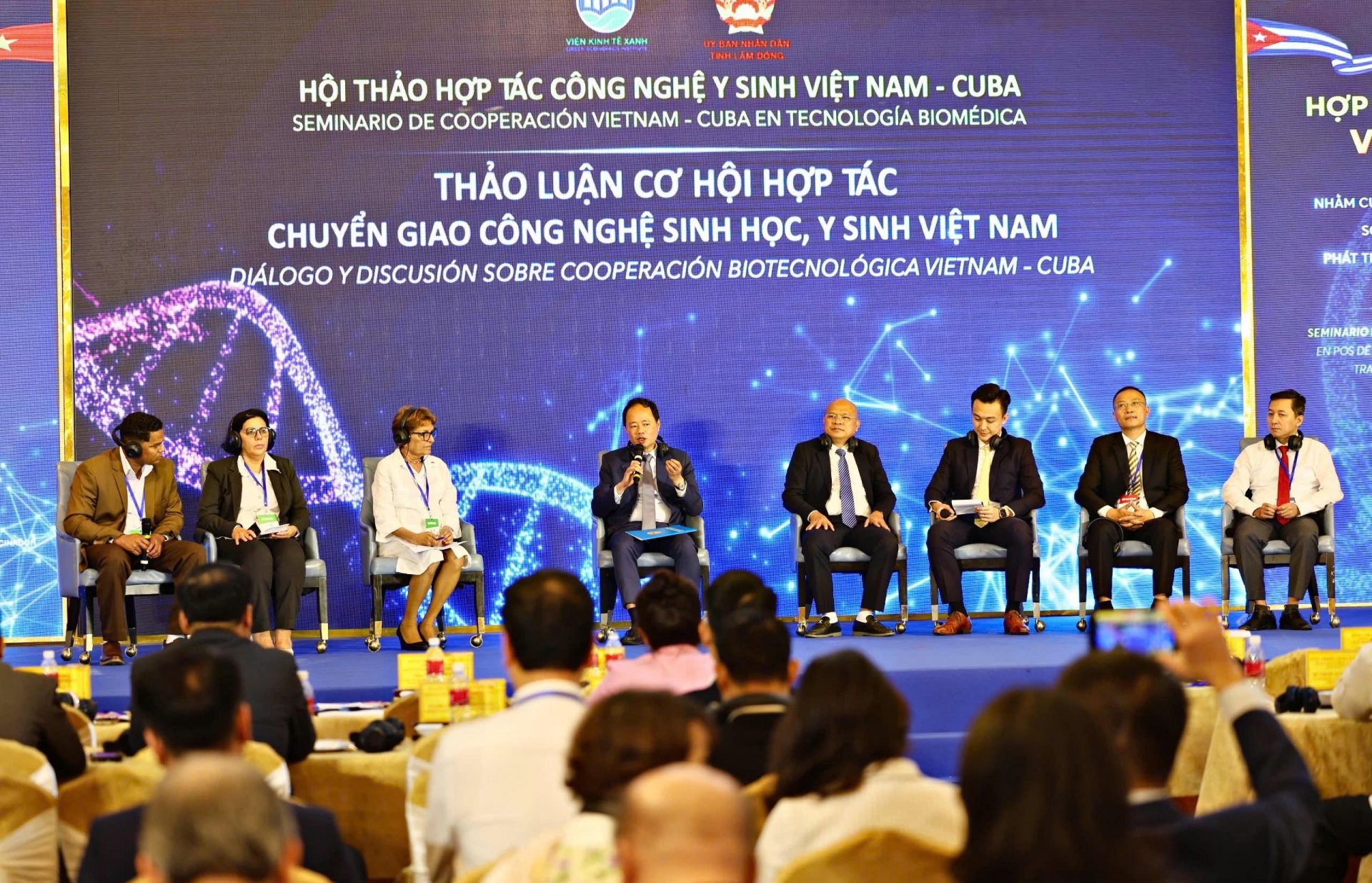
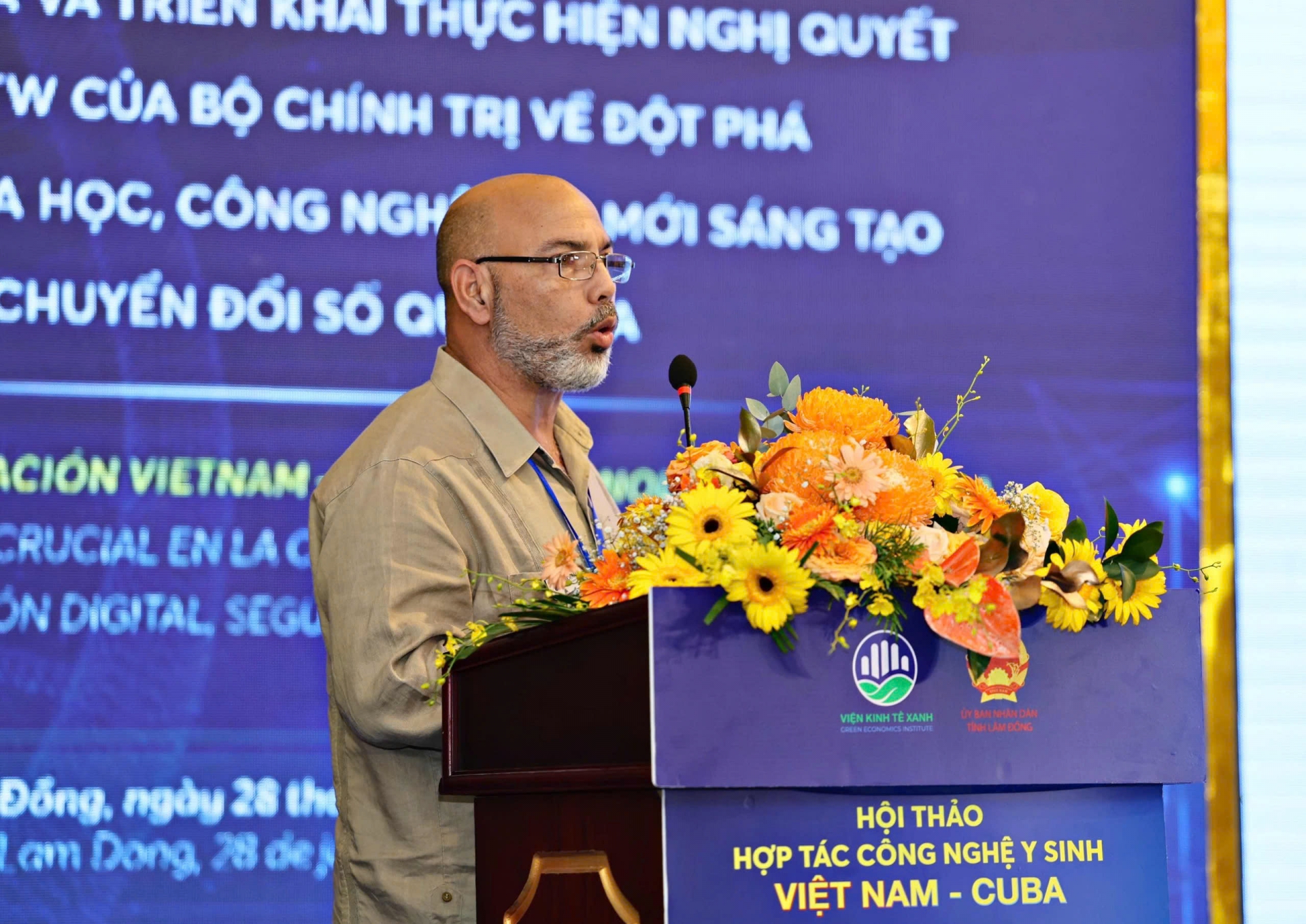
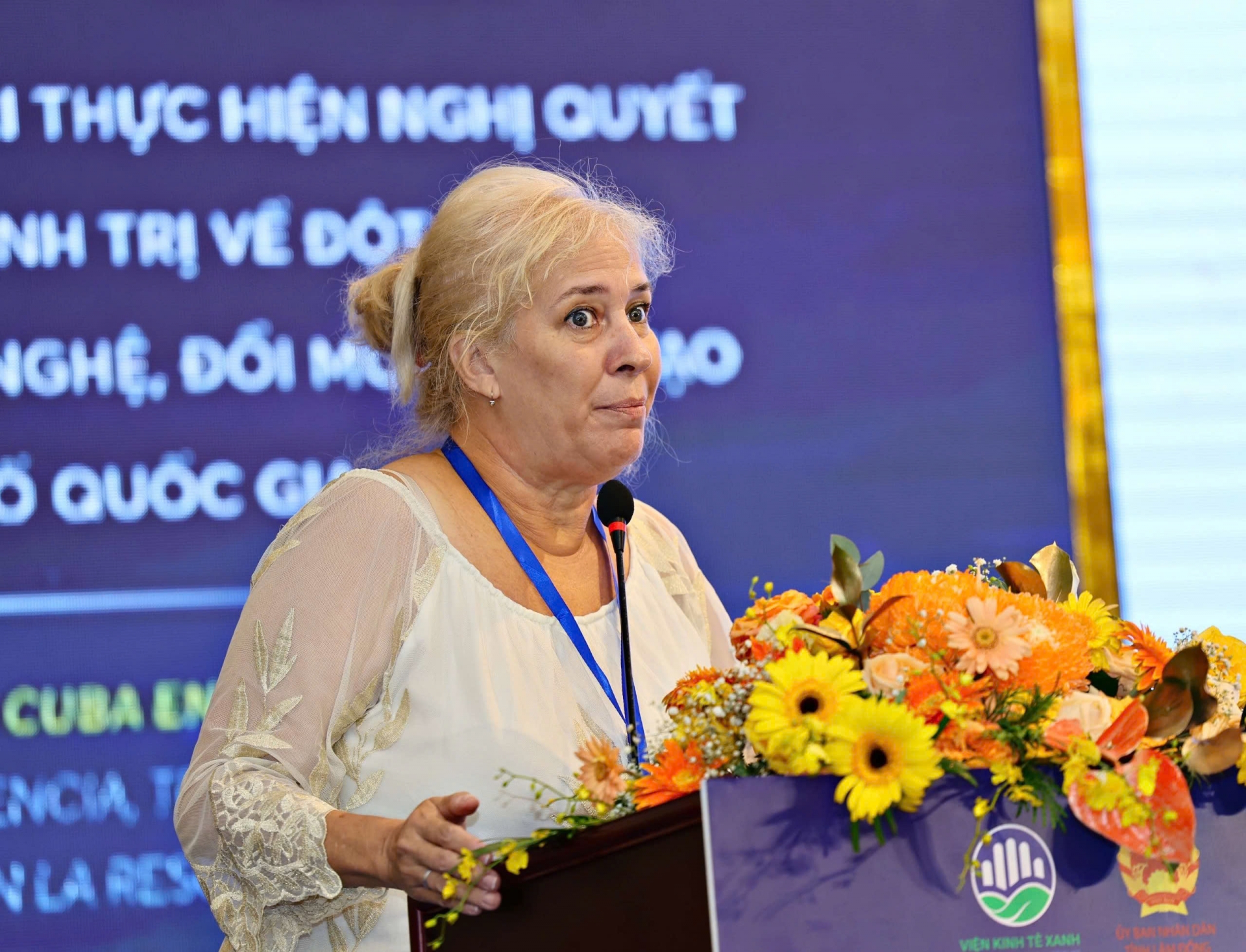
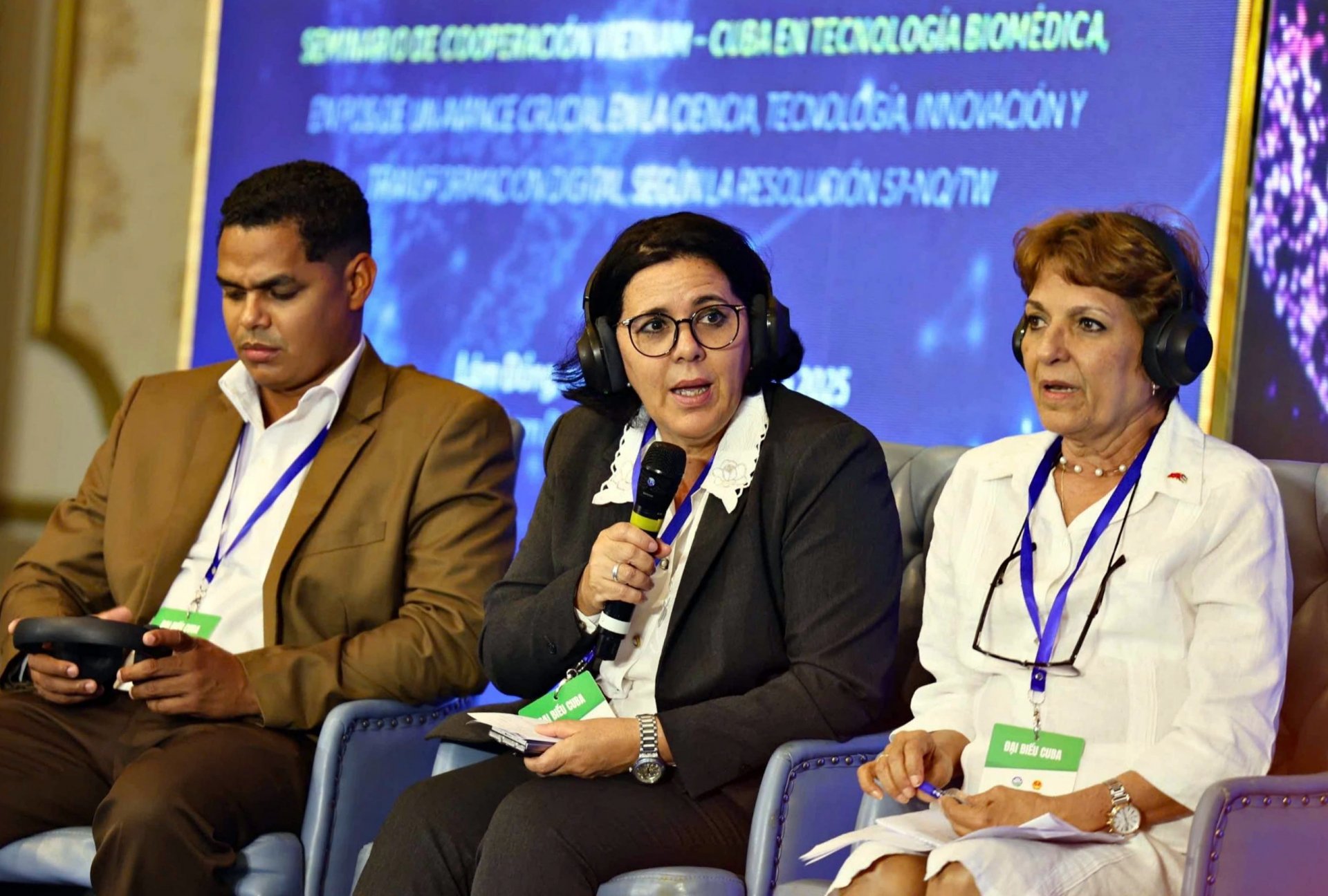
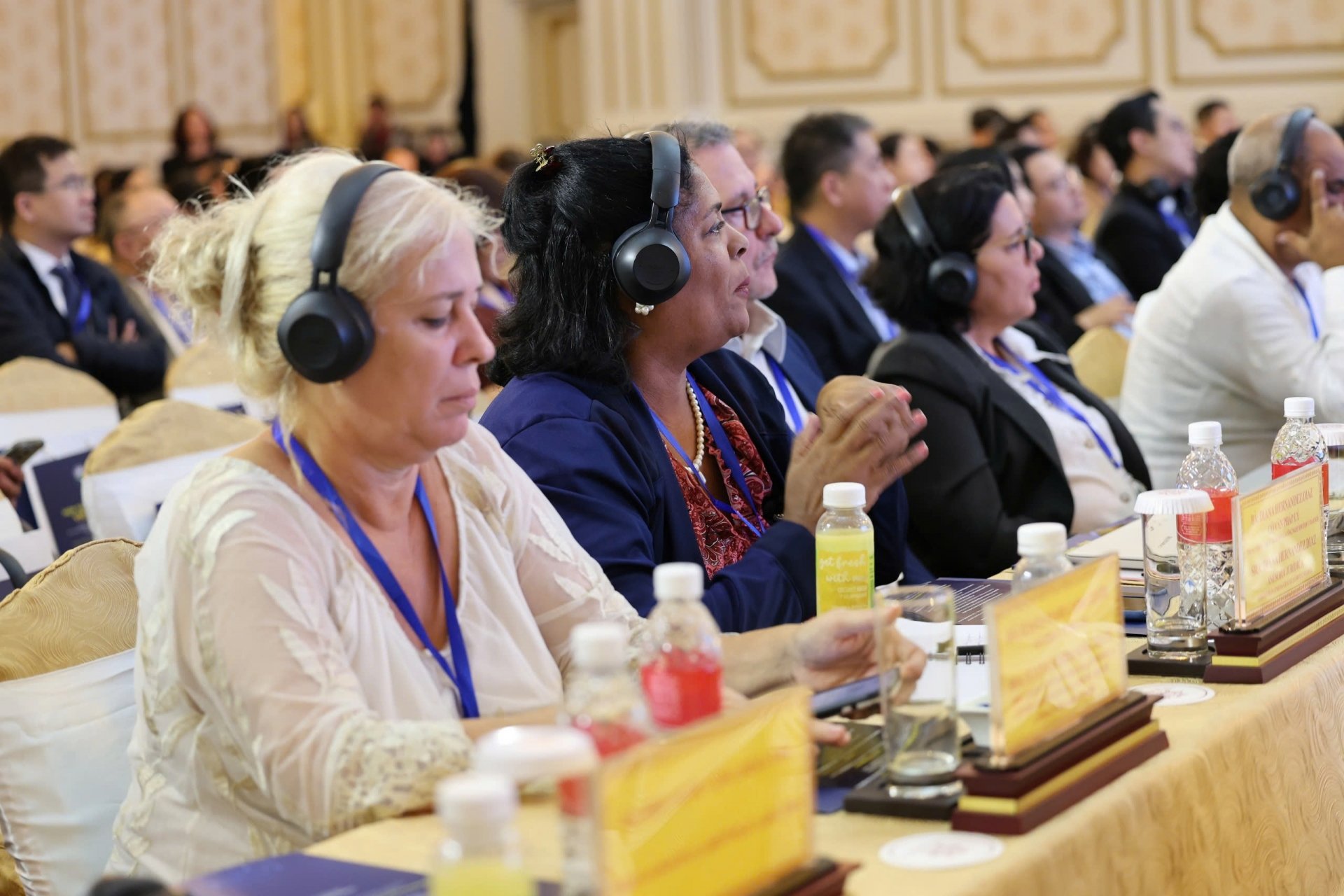

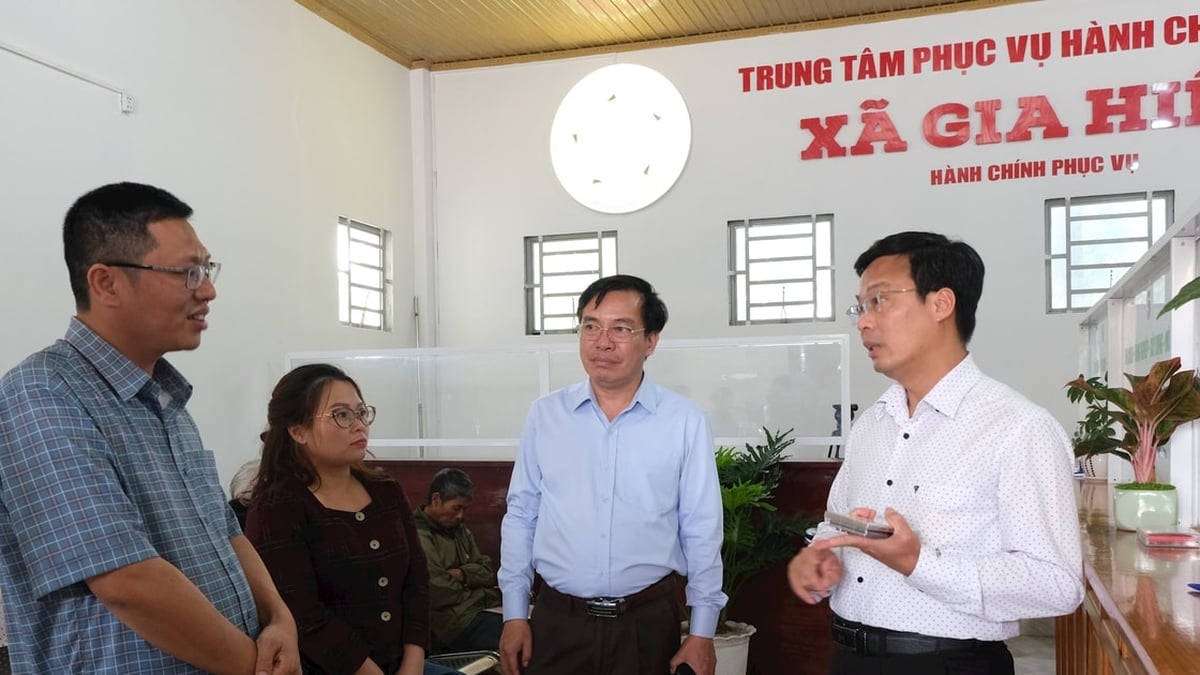

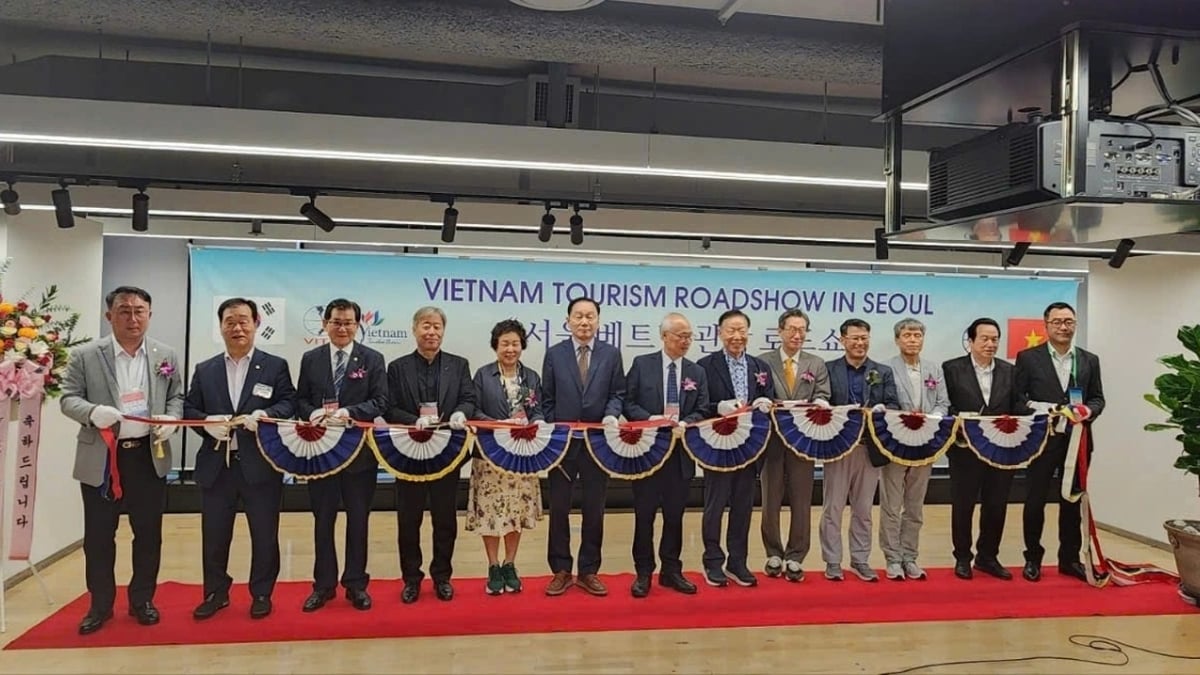

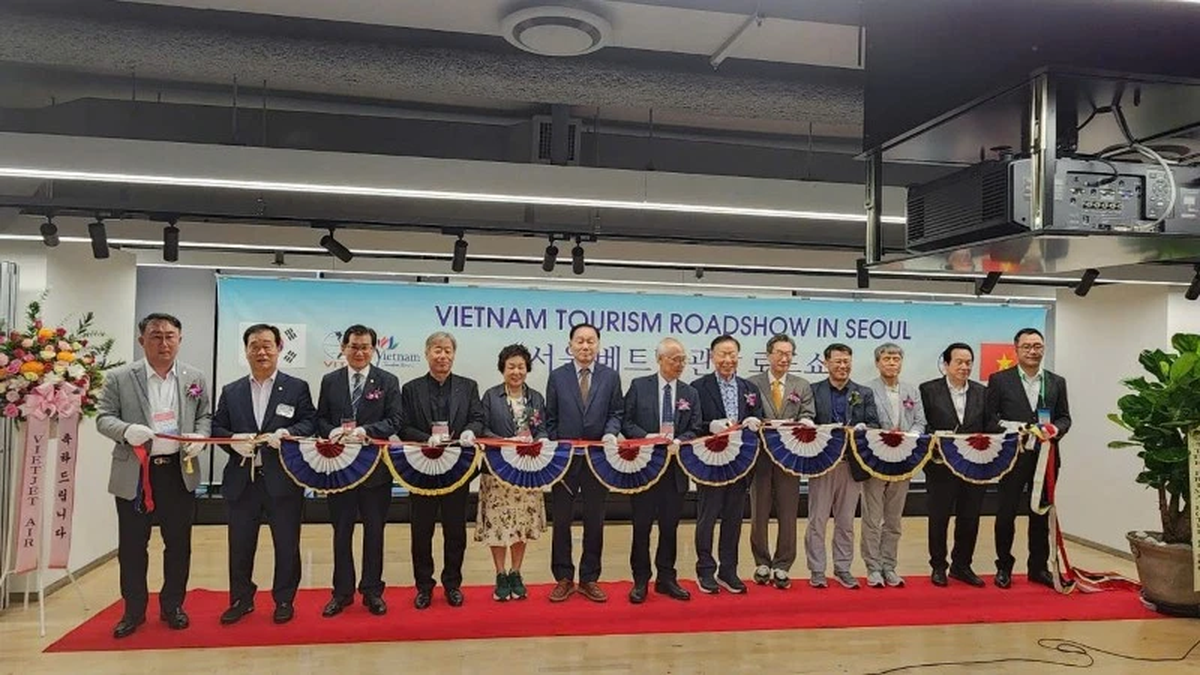
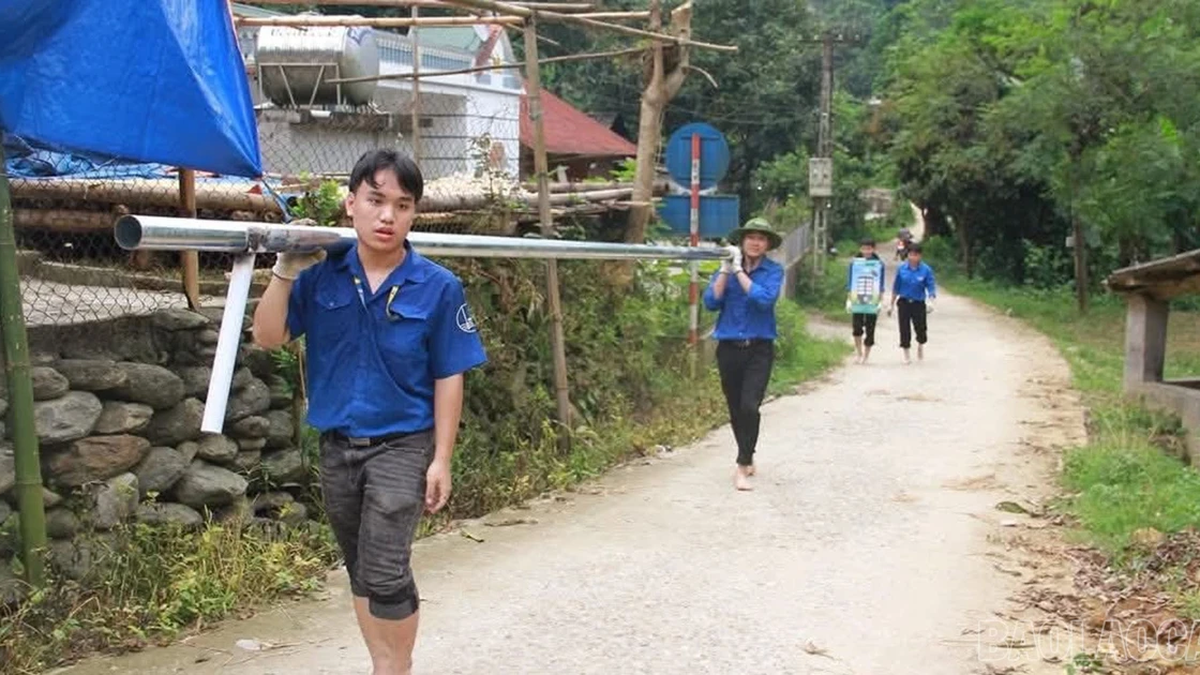
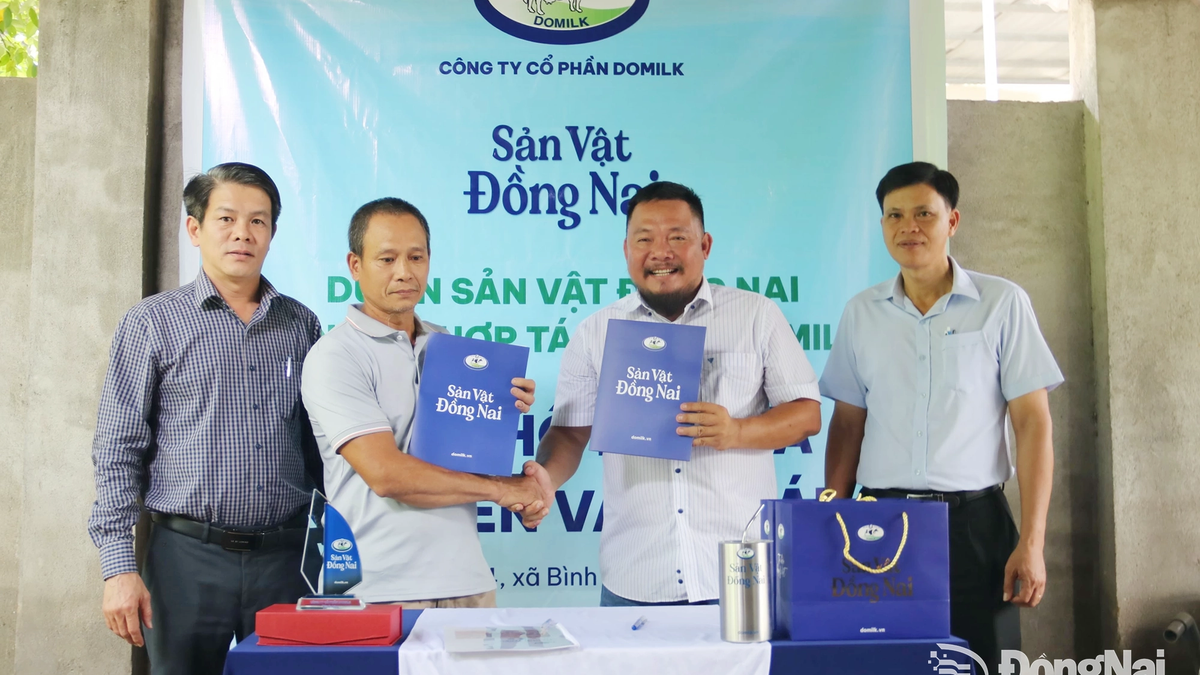

























































































Comment (0)